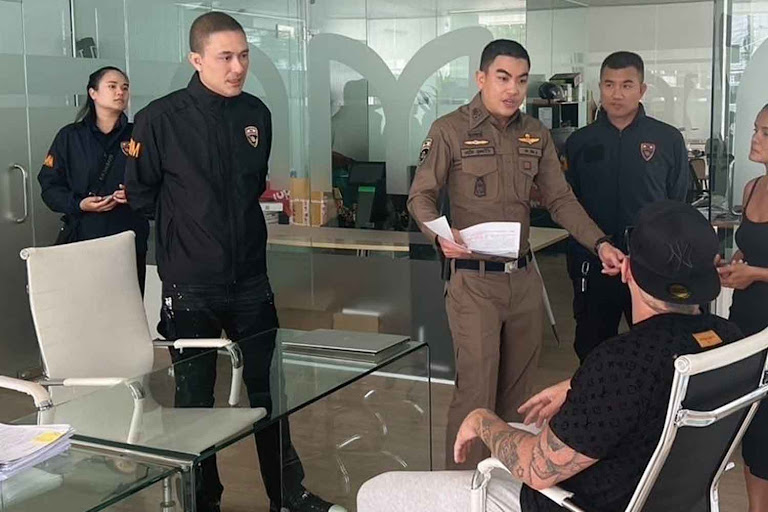Koh Samui Arrest: Fugitives' Businesses Expose Global Mobility Risks
British fugitives' Thai businesses reveal challenges in cross-border enforcement, highlighting the misuse of nominee shareholders to conceal illicit activities.

The arrest of two British nationals on the Thai island of Koh Samui, as reported by the Bangkok Post in these recent findings, isn’t just another crime blotter item. It’s a glimpse into the complex, often murky, intersection of global mobility, criminal justice, and the enduring appeal of exploiting loopholes for personal gain. While the idyllic imagery of Koh Samui conjures thoughts of escape and relaxation, for Kieren Daniel Farrer Thornton and Ashton Kevin Saunders, it represented a sanctuary — a place to rebuild lives built on foundations of robbery and fraud, respectively.
What we see here is a microcosm of a larger systemic issue: the challenges of transnational law enforcement in an era of increasingly frictionless movement. The fact that both men, wanted for serious crimes in the UK, were able to establish businesses, albeit illegally, speaks volumes about the porous nature of borders and the limitations of international cooperation, even between close allies like the UK and Thailand.
The case of Saunders, in particular, highlights the enduring allure of nominee shareholder structures. These arrangements, where individuals conceal their ownership by using local proxies, are ostensibly meant to facilitate foreign investment. But, too often, they become vehicles for illicit activities, as authorities allege was the case in the Koh Samui operation. This necessitates a deeper look at how countries regulate foreign investment and the effectiveness of mechanisms designed to prevent such abuses.
The broader implications extend beyond just catching individual criminals. It raises fundamental questions about the integrity of global financial flows and the potential for these structures to be exploited by a range of actors, from tax evaders to money launderers.
Consider these factors that contribute to the complexities surrounding this type of transnational crime:
- Regulatory arbitrage: Criminals exploit differences in regulations and enforcement capacity between countries.
- Information asymmetry: Gaining access to accurate information about beneficial ownership of companies remains a challenge for law enforcement agencies globally.
- Limited resources: Investigating cross-border financial crimes requires significant resources and expertise, often stretching the capacity of national agencies.
- Cultural and linguistic barriers: Collaboration between law enforcement agencies can be hindered by differences in language, legal systems, and cultural norms.
“The Koh Samui case serves as a stark reminder that globalization, while offering opportunities for legitimate economic activity, also creates new avenues for those seeking to evade justice. The challenge lies in ensuring that our legal and regulatory frameworks evolve at a pace that can effectively counter these threats without stifling legitimate international commerce and collaboration.”
The Thai authorities' response — including visa revocation and deportation proceedings — demonstrates a commitment to upholding the rule of law and cooperating with international partners. But it also underscores the reactive nature of the current approach. Catching criminals after they have already fled and established illicit operations is far less effective than preventing them from doing so in the first place. This requires proactive measures, such as enhanced information sharing between law enforcement agencies, stricter due diligence requirements for foreign investors, and greater transparency in corporate ownership structures. The events outlined in the Bangkok Post should act as a catalyst for strengthening these preventative measures. Only then can we hope to address the systemic vulnerabilities that allow criminals to exploit the cracks in global mobility.









